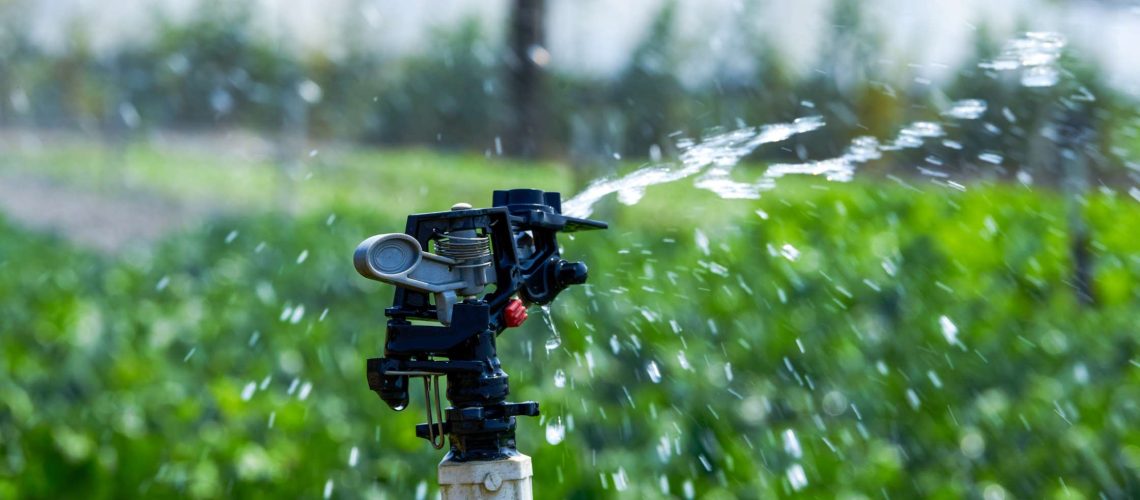Imagine a lifeline weaving through parched fields, bringing hope and sustenance. When you consider how irrigated agriculture intersects with climate change, you’ll find it’s not just about water; it’s about survival and adaptation. Reliable irrigation systems buffer crops against the harsh blows of droughts and unpredictable weather, ensuring food security.
Yet, there’s more to the story. Modern techniques like drip irrigation conserve water, transform farming efficiency, and improve resource management. How does all this contribute to rural economies and ecological balance? Let’s explore the intricate connections that make irrigated agriculture vital in a changing climate.
Importance of Irrigated Agriculture
Irrigated agriculture plays a crucial role in ensuring food security by providing a reliable water source amid unpredictable weather patterns and prolonged droughts. You can enhance crop yields by 2-3 times compared to rainfed systems, making it vital for year-round food production.
Adopting sustainable practices will improve water management and ensure efficient resource use. This will boost food security and support rural development by creating jobs and stabilizing local economies.
Effective water management strategies help maintain consistent crop yields, which is essential for meeting the needs of growing populations. Incorporating these practices ensures you’re contributing to a sustainable and resilient agricultural system that can withstand environmental challenges while promoting community well-being.
Climate Change Impacts
Climate change increasingly disrupts weather patterns, leading to more frequent droughts and altered precipitation that threaten crop viability.
You can’t ignore how these changes reduce soil moisture, making it harder for crops to thrive. Precipitation variability means some regions get too much rain, causing floods, while others face droughts.
This extreme weather severely impacts agriculture, testing the drought resilience of different crops. When soil moisture levels drop, crops struggle to grow, and yields suffer.
Weather patterns are unpredictable, forcing you to adapt quickly. Understanding how climate change affects crop viability helps you take proactive steps to protect your farm.
Modernizing Irrigation Systems
Modernizing irrigation systems plays a crucial role in enhancing agricultural resilience and water-use efficiency. Drip irrigation and precision agriculture can be leveraged to optimize water management, significantly reducing water waste.
Adopting advanced irrigation technology ensures crops get the exact amount of water they need, boosting yields and conserving resources. Rainwater harvesting is another effective strategy, capturing rainwater for future use and thereby improving water availability during dry periods.
Integrating these modern methods helps you respond better to climate variability, ensuring sustainable farming practices. Embracing these innovations, bolsters crop productivity and supports long-term environmental sustainability, making your agricultural practices more resilient to climate change.
Economic Benefits and Policies
Adopting modern irrigation methods enhances agricultural sustainability and unlocks significant economic benefits that can transform rural communities.
Implementing effective investment strategies in irrigation infrastructure boosts food production and supports rural development. Water efficiency technologies, like drip irrigation, maximize resource use and reduce costs.
Policy frameworks that promote sustainable practices and incentivize innovation are crucial. Well-designed policies can support smallholder farmers, increasing farm incomes and reducing poverty.
Public-private partnerships can further advance these goals, driving economic growth.
Empowering Sustainable Irrigation Solutions for a Resilient Future
At Mud House Supplies, we understand the critical role of efficient irrigation in combatting climate change and nurturing our agricultural landscapes.
With our extensive range of high-quality irrigation products and expert guidance, we empower our clients to implement sustainable practices that conserve water, enhance crop yields, and support local economies.
Our commitment to innovation and sustainability means we’re dedicated to providing the tools and resources necessary for farmers to thrive in an ever-changing climate.
Together, we can cultivate a greener future, one drop at a time.

